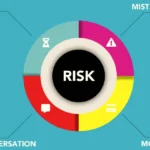
6 Most Common Types of Tests You Can Face During an Interview
September 26, 2022Candidates interviewing for a job should be aware of the different types of tests that may be administered. This can help them anticipate what questions might be asked and how to respond.
What is an interview test?
An interview test is a type of assessment that helps to assess a candidate’s abilities in a certain area. This type of assessment can be used to help identify any strengths or weaknesses in a candidate’s abilities.
Interview tests can be used in a variety of different settings. They can be used in the interview process to assess a candidate’s skills in a specific area. They can also be used in the selection process to help identify which candidates are likely to be a good fit for a role.
Interview tests can be difficult to prepare for. They can be challenging to score, and they can be difficult to use in a meaningful way. However, interview tests can provide a valuable assessment of a candidate’s skills and abilities.
Why do employers conduct interview tests?
It can be hard to pinpoint why a company might decide to conduct an interview test. There could be a number of reasons, but common reasons include assessing the skills of potential employees and seeing how well the candidates fit the company’s culture.
Interview tests can be helpful in both of these regards. For instance, if an interviewer is looking for candidates who have the skills necessary for the job, a test can help check if the candidates have the knowledge required. And if the company wants to see if a candidate would be a good fit for the company’s culture, a test can help gauge if the candidate is willing to follow the rules and values of the company.
There are a few things to keep in mind when conducting an interview test. First, make sure the questions are relevant to the job for which the candidate is applying. Second, make sure the test is designed in a way that is fair to the candidates. And make sure the test is administered in a way that is both fair and efficient.
Six most common interview tests
1. Aptitude or psychometric tests
Many people ask themselves whether or not they should take an aptitude or psychometric test. After all, these tests can be expensive, and many people are not sure if they are worth the time or money.
There are a few things to consider before making a decision. First, it is important to know what the test is measuring. Aptitude tests usually measure skills and abilities that are important in the workplace. Psychometric tests, on the other hand, measure abilities that are more general. This can include things like intelligence, creativity, and problem-solving.
Second, it is important to know what you are looking for. If you are looking for a test to help you decide if a certain career is right for you, then an aptitude test may be a better option. If you are just curious about a certain career or want to see if you have the skills for a certain type of job, a psychometric test may be a better choice.
it is important to consider your budget. Aptitude tests can be expensive, and some tests may require more than one session to complete. Psychometric tests can also be expensive, but they may only require one or two sessions.
Overall, it is important to consider the information above before deciding whether or not to take an aptitude or psychometric test. Both tests can be helpful in determining your abilities and interests, and they can be a cost-effective way to find out more about yourself.
2. Personality Tests
Personality tests can be a great way to get a closer look at someone’s personality. They can be a fun way to learn more about someone and can be used to help determine how someone will behave in different situations.
There are a number of different personality tests available, and each one has its own unique features. Some of the most popular tests include the Myers-Briggs Type Indicator and the Enneagram.
The Myers-Briggs Type Indicator is a test that is used to help determine someone’s personality type. There are 16 different personality types, and the test can help you to understand how you typically behave.
The Enneagram is a test that is used to help people understand their personality type. There are nine different personality types, and the test can help you to understand how you typically think and feel.
Personality tests can be a great way to learn more about someone and can be used to help determine how someone will behave in different situations. They can also be a fun way to get to know someone better.
3. Specific Skills Tests
Every year, many people take skills tests in order to get a job. These tests look at many different skills that are needed in order to be successful in the workforce.
Some of the skills that are looked at on these tests are reading, writing, math, and science. These tests are important because they help companies know what skills their employees have.
These tests can also help people to find a job that is right for them. Companies will usually not hire someone who does not pass these tests.
If you want to get a job, make sure that you take the skills tests. They will help you to be successful in the workforce.
4. Job Simulation Tests
Are you looking for a way to assess candidates for a job you’re hiring for? Do you want to see how a potential employee would handle a job? Job simulation tests are a great way to do just that.
What is a job simulation test?
A job simulation test is a simulation of a real job. You sit in a chair and a computer program simulates the job. You complete tasks that are similar to the tasks a real employee would achieve. This gives you a good idea of how a potential employee would handle a job.
How are job simulation tests useful?
job simulation tests are useful for a few reasons. First, they can help you assess candidates for a job. You can see how a potential employee would handle a job. This can help you make a decision about whom to hire.
Second, job simulation tests can help you find the right employee for a job. You can find out if a potential employee is fit for the job. This can help you save time and money.
Third, job simulation tests can help you find new ways to do your job. You can find new ways to improve your work. This can help you stay ahead of the competition.
5. Written tests
Writing effective tests is an important part of code quality and improving software reliability. Writing tests with good coverage is essential for ensuring that code is reliable and tested.
Coverage is a measure of how well a piece of code covers its test cases. Good coverage means that the code is tested enough to find all potential problems.
There are many different ways to measure coverage. One popular approach is to use a coverage tool. Coverage tools can detect which parts of the code are being executed and how often.
Coverage tools can be helpful, but they can also be time-consuming to use. It can be easier to write tests if you have a good understanding of how the code works.
It is important to write tests that are specific to the code you are testing. If you are testing a function, make sure you test the function the way it is used in the code.
Testing is an essential part of code quality and reliability. Writing tests with good coverage is essential for ensuring that code is reliable and tested.
6. Group activity tests
Group activity testing is a great way to get your team working together more effectively. It can also help you identify areas where your team needs improvement.
There are a few things you need to do in order to get started. First, select a task or project that your team can work on together. Next, choose a testing method that will be most effective for your group. There are a number of different options available, such as role-playing, betting, and consensus building.
Once you have chosen a testing method, set up a timeline and schedule your team members. Make sure to create a designated leader for your group, and provide them with instructions on how to get started.
Group activity testing is a great way to get your team working together more effectively. It can also help you identify areas where your team needs improvement.
Knowing what to expect during your interview can help you prepare and feel more confident. There are six common types of tests you may face during an interview: behavioural questions, technical questions, situational questions, intelligence questions, math questions, and writing questions. Practice answering these kinds of questions so you know what to expect and feel prepared for any questions that may come up.









